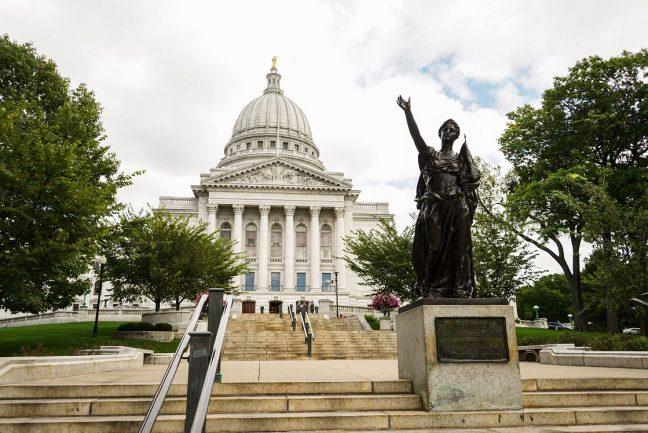On Wednesday, Gov. Tony Evers introduced his second coronavirus relief package.
University of Wisconsin economics professor Barbara Wolfe discussed the details of the two packages and their potential benefits in an email to the Badger Herald.
Wolfe said part of the first relief package pays the Department of Administration and the military for their help responding to COVID-19. The package would also hire 64 new employees at the Division of Public Health and provide funds for local public health departments, particularly for emergency assistance.
The package would also provide funding to assist child care workers and groups that help the homeless. Wolfe said these funds can help reduce virus transmission and allow health care workers to function.
Additionally, Wolfe said the first package would prohibit insurance policy cancellations during the pandemic.
“The core argument against [the first package] is really only an argument about funding,” Wolfe said.
Wolfe said the second package includes a proposal that would require the state to pay unemployment claims instead of using the payroll taxes from businesses, many of which were required to close under the governor’s order.
According to Wolfe the package would increase funding for Medicaid providers and provide grants to food banks and small businesses. It would also require the state SeniorCare program to cover all vaccinations and provide more money to critical care workers.
“The components focused on flexibility for health care providers and paying more under Medicaid and Medicare for care are important for the health for all of us,” Wolfe said.
Wolfe said part of the first package eliminates the one-week period for unemployment insurance. Wolfe said this part of the bill will likely pass.
Wolfe said allowing employers to continue to partially pay laid-off employees without an effect on eligibility for unemployment insurance is potentially beneficial to everyone. Workers would receive back payments for any lost unemployment insurance benefits as a result of lawmakers’ delaying action on suspending the one-week waiting period under Evers’ proposals.
“We do not want more homeless or an incentive for individuals who are ill to go to work and spread the illness because they feel financially they have to,” Wolfe said. “That is the core argument to get rid of the one week waiting period.”
Evers said in the proposal it is critical that the legislature takes up comprehensive legislation to provide necessary relief as soon as possible
According to APG Wisconsin, Sen. Dan Feyen (R-Fond du Lac) said they hope to vote on something as early as next week.


